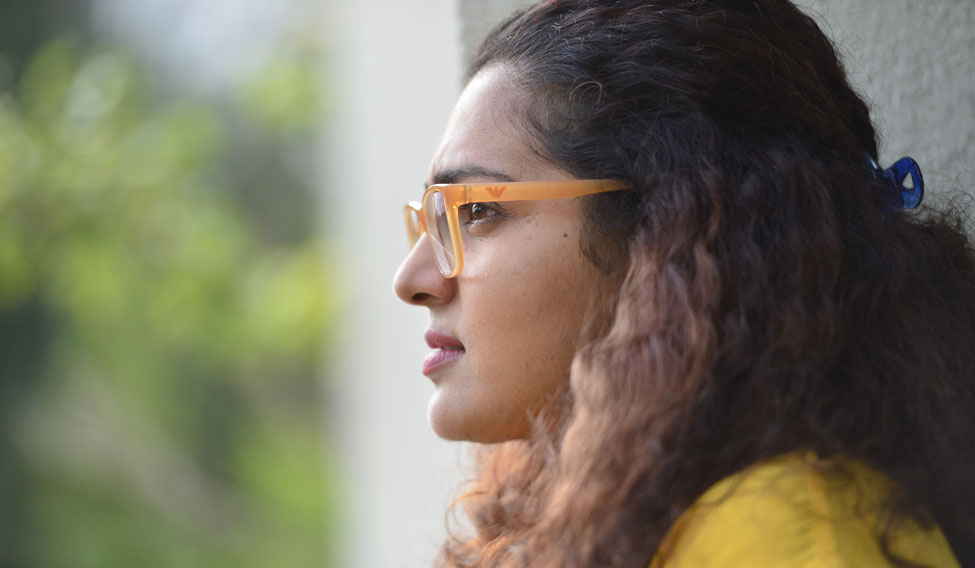When the film Notebook released in 2006, I was 19 years old, reveling in my newfound freedom away from home in Mumbai. Notebook created a big impact in my life because my close friend from school, Maria Roy, was acting as one of the three heroines in the film. The other two were actors Roma and Parvathy and in some vague and vicarious way, I felt connected to them, maybe just because they were Maria’s reel friends while I was her real one. Parvathy was a scrawny little thing those days, with bouncy hair pulled back into a ponytail. There was a sort of vulnerability to her; like she was feeling around in the dark for that switch which would light up her personality.
Around eight years and many films later, it was clear that she had found it. I saw her at a conference on gender equality in Kovalam. That poised and articulate woman sitting onstage, confidently expressing the need for women to stand for their rights, bore little resemblance to the young and unsure Parvathy of Notebook. She had come a long way.
I wonder if Parvathy would accept her role in Notebook today. Because the real Parvathy is so unlike the student she plays in the film, who is too ambitious to acknowledge her part in the death of her friend. Today, the actor is fiery, fierce and fearless. She’s the badass of Mollywood who ignites the most extreme passions in people. You could love her or hate her, but you couldn’t have lukewarm feelings for her.
One of the defining characteristics of Parvathy is that she refuses to get boxed into categories. In 2015, she rebelled against her surname Menon because it associated her with a specific caste. In a Facebook post, she wrote, “I am not the religion or the caste I was born into, alone. I am also not my gender or my skin colour, alone. I believe that I am a bit of everything and so are [sic] everyone else. I also do not believe that any of these aspects are of any value in defining how well I live or how qualified I am at work.”
Then, last year, she stirred up the hornet’s nest by exposing the casting couch in Mollywood. “There are people in the industry who ask women to sleep with them in order to get a role,” she said. “I have been asked. They ask very blatantly as if it is their right. I have said no. After a point, when you have made a mark in the industry, they won’t ask you.”
A few days ago, Parvathy scored one more when she called dialogues in the film Kasaba, starring Malayalam superstar Mammootty, misogynistic. In the scene that she refers to, Mammootty grabs the belt of a junior female police officer and threatens to break her menstruation cycle. She was heavily trolled on social media by fans of the superstar and issued death and rape threats.
The director of Kasaba, Nithin Renji Panicker, was echoing the views of many when he posted on Facebook, “There is no need to discuss a movie that was released a year ago. It is quite evident to all that this is merely a publicity stunt hoping to garner fame.” The real question is not why Parvathy said what she did. It is why no one else did. As Panicker himself said, the film released over a year ago. Why didn’t any of the other actors in the industry speak up against it?
If the controversy has created a rift in the industry, it’s not between those who have supported Parvathy and those who have opposed her. It is between those who have supported her and those who have stayed silent. In this case, silence says so much more than words – of the power of the superstars, of the embedded chauvinism in the industry, of the equilibrium which many actors (both male and female) are scared of disturbing.
The real issue is not even that of fear; it’s that of passivity. Yes, women are scared of ruffling the feathers of the bigwigs of Mollywood. But many of them have not recognised misogyny when it has been staring them right in the face. As Parvathy herself has said, “I grew up watching films that presented male perspectives of women. There aren’t many movies which explore the sexuality of women in Malayalam cinema till now. It is through books that I gained the right perspective. The lack of exposure to right perspective has caused me to be in abusive relationships. When a boy stubbed cigarette on my leg, I thought it was out of love. You know why? Because our films taught us slapping in the face was a way of expressing love.”
A while ago, another actor, Anna Rajan, was trolled by Mammootty fans for commenting that she would rather act opposite his son Dulquer Salman and have Mammootty play her father. Almost immediately after facing the backlash, the actor backtracked. “I never wanted to insult or disrespect Mammootty or Dulquer Salman,” she said. “I am no one to criticise them.” Parvathy, on the other hand, has stood her ground, refusing to be strong-armed out of the playing field. She’s facing the storm head-on. As she tweeted in the beginning of the year: “What a glorious time to be alive. Everyone showing their truest colours *sits back with popcorn and watches on*” You’ve either got to be a crackpot or incredibly courageous to laugh at the tremendous tidal wave of Malayali venom. In this case I prefer to think that, it is the latter.







